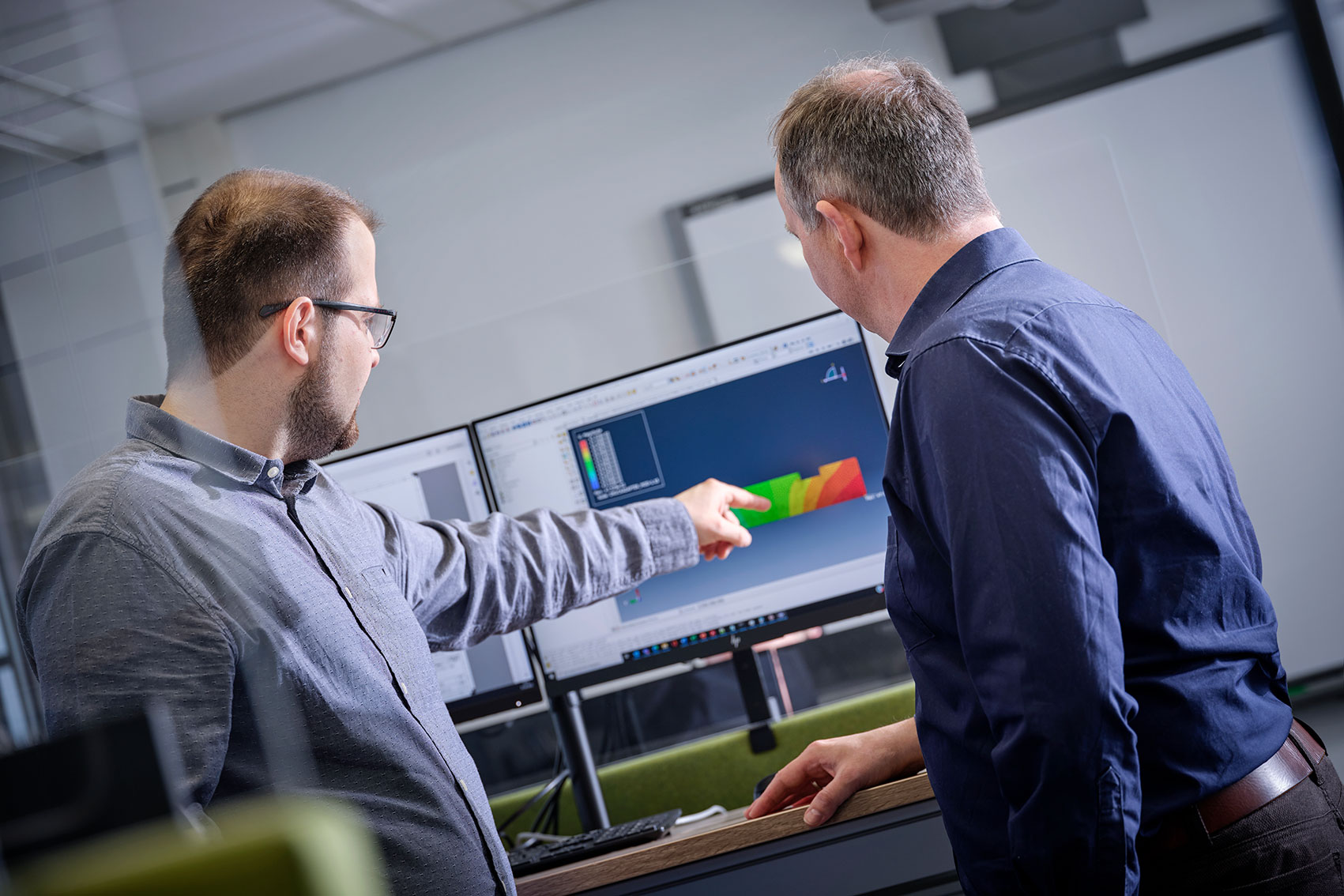
The Delfin project – a recently completed, €7.5 million research venture – explored how energy storage for hydrogen-powered vehicles could be built more affordably. As a major contributor to the project, NPROXX collaborated with some of the world’s leading automotive institutes to advance the hydrogen storage technology needed to make clean, sustainable transport accessible for all.
By focusing on how to reduce the cost of fuel cell technology, the Delfin project aimed to unlock some of the challenges facing the achievement of truly emissions-free transport on our roads. Cost is recognised as a key barrier to the wider adoption of hydrogen-fuelled commercial and personal transport on a global scale. NPROXX was key to this project, contributing their expertise in hydrogen storage manufacturing to inform the research and improve existing pressure vessel technology.
“This project has given NPROXX the chance to show what we do best,” says Alex Wolter, Simulation Engineer at NPROXX. “Almost every team was involved in this project at one stage or another, so it was a great opportunity to demonstrate our production line expertise. From the R&D stage, to design, to production and testing – we collaborated well, both internally and with partners, to produce our most weight-efficient vessel yet.”
“Optimising our products was a very exciting process to be involved in,” adds Jannes Timke, Manufacturing and Process Engineer for NPROXX. “We know our hydrogen storage technology is already some of the best in the world, but having the time and resource to invest in finding ways to improve it further – making it go the extra mile – was very rewarding.”
Exploring and enhancing NPROXX technology
Calculating the cost of a standard NPROXX pressure vessel was key to this research. “Before optimising our technology, we had to establish price reduction opportunities,” says Timke. “We found that reducing each vessel’s carbon fibre content was the key to bringing production costs down. Our work on this project mainly looked at how to get the most out of every inch of carbon fibre used by experimenting with new materials. This produced incredibly effective results.”
Efficient R&D processes were also crucial. “We utilised practical research methods to ensure we were exploring possibilities in the most resourceful way possible,” continues Timke. “In the development stage, for example, we produced a subscale vessel before creating the longer, full-scale version. This prototyping process proved our ideas worked without potentially wasting excess materials.”
Expanding knowledge through collaboration
The project brought several leading automotive manufacturing partners – including Ford, BMW and Mercedes-Benz – together with accomplished suppliers and engineering specialists, enabling them to learn from one another’s expertise. “Working with these partners was hugely insightful, since it increased our exposure to automotive industry-level manufacturing,” explains Wolter. “These are massive, world-renowned firms we were working with – some with more than a century of manufacturing experience. They had a very particular way of doing things, so we quickly learned how they work to ensure the project went smoothly.”
One way in which the NPROXX team had to adapt was in the testing stage of the project. “We worked closely with the partners to provide what they needed for testing our vessels,” says Timke. “Since the project was centred around research, we didn’t have certified bodies testing these products. Instead, following our internal testing, the partners took the vessels and tested every single unit we produced to see whether our methods of optimisation could endure the necessary amount of pressure. The nature of these tests, both theoretical and physical, were extensive and challenging. Yet, it was this level of examination that ultimately allowed us to perfect the vessels.”
Driving the automotive industry forward
NPROXX’s outputs for this project have proved how hydrogen fuel cells can be more affordable. In future, the optimised technology NPROXX has developed can be applied to all kinds of hydrogen fuel cell or even CNG pressure vessels, depending on the amount of hydrogen required. “We look forward to working with some of these partners and collaborators again,” concludes Wolter. “This project marks the first big step in NPROXX’s efforts to make hydrogen transport accessible for all. Off the back of this, we will continue innovating, adapting and optimising this technology to support the roll-out of clean energy vehicles as standard.”
“The Delfin project is a huge step towards fuel cell vehicles that offer performance at a marketable price,” affirms Steffen Bilger, former German Parliamentary State Secretary for the Federal Ministry of Transport and Digital Infrastructure. “In order to see commercial adoption of fuel cell vehicles across Europe, we must prioritise developing technology that harnesses hydrogen. This project has done just that, and as a result we are closer than ever to successfully switching to alternative fuels on a large scale.”
Find out more about NPROXX’s other specialist hydrogen storage technology or contact us directly to discover the potential of our manufacturing expertise.